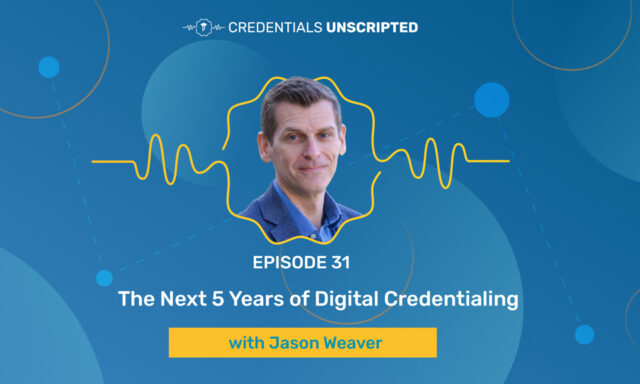
Parchment News
The Next 5 Years of Digital Credentialing
We use cookies to help you navigate efficiently and perform certain functions. You will find detailed information about all cookies under each consent category below.
The cookies that are categorized as "Necessary" are stored on your browser as they are essential for enabling the basic functionalities of the site. ...
Necessary cookies are required to enable the basic features of this site, such as providing secure log-in or adjusting your consent preferences. These cookies do not store any personally identifiable data.
Functional cookies help perform certain functionalities like sharing the content of the website on social media platforms, collecting feedback, and other third-party features.
Analytical cookies are used to understand how visitors interact with the website. These cookies help provide information on metrics such as the number of visitors, bounce rate, traffic source, etc.
Performance cookies are used to understand and analyze the key performance indexes of the website which helps in delivering a better user experience for the visitors.
Advertisement cookies are used to provide visitors with customized advertisements based on the pages you visited previously and to analyze the effectiveness of the ad campaigns.
Other cookies are those that are being identified and have not been classified into any category as yet.
Surely you remember the day you got your high school diploma? How about the day you graduated from college? The joy of marking these milestones tends to stay with us for decades.
And yet for all their intrinsic value — the feelings of accomplishment, the camaraderie of graduating with friends — diplomas also have practical meaning. They signify achievement, endurance, and in some cases, exceptional intelligence and skill. We tout them in face-to-face and online conversations, and highlight them in social spaces such as Facebook and LinkedIn.
So valuable are diplomas that there’s now a billion-dollar cottage industry serving fraudsters who’ll pay up to look as if they’re graduated from a prestigious institution1. That should worry us. As educators, students, administrators, and service providers we should be taking steps to preserve the sanctity of the diploma. We can do that and make the document itself more useful. First, we have to get paper out of the process.
A Paper Past is Giving Way to a Digital Future
For students entering a workforce that’s governed by digital technology, the diploma needs to be an online-accessible testimonial for the person who earned it. We won’t get there overnight, but at Parchment we’re already taking steps to make the diploma more accessible and secure, and thereby more meaningful for both students and their schools. By 2020, I expect the diploma to change in the following ways:
The diploma has been a mark of achievement for generations. It still is, and I don’t expect that to change with efforts to make the diploma a digital-first document. But with fraud on the rise, our first priority as educators and administrators is to preserve the sanctity of this vital credential. The good news is we can do that and at the same time make the diploma itself more useful for students and for issuing institutions. And we can do it by 2020.
We’ll get there by making the diploma securely shareable. We’ll also make it verifiable and infuse it with data that preserves the integrity and brand of issuing institutions. Finally, we’ll make it visual and interactive to communicate more about the experience of the student who earned it. Will it be easy? No, but at Parchment we’re committed to realizing this future. We hope you’ll join us.
Matthew Pittinsky, Ph.D. is Chief Executive Officer of Parchment. He holds a B.S. in Political Science from American University, Ed.M. in Education Policy from Harvard University Graduate School of Education and a Ph.D. in Sociology of Education from Teachers College, Columbia University.
SOURCING:
1. https://www.insidehighered.com/views/2014/07/02/essay-diploma-mills
